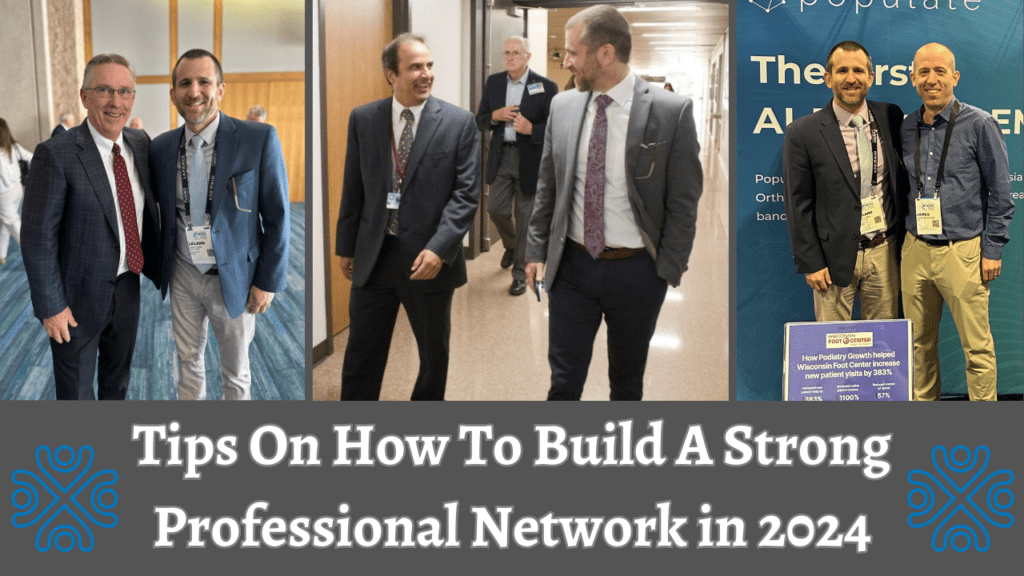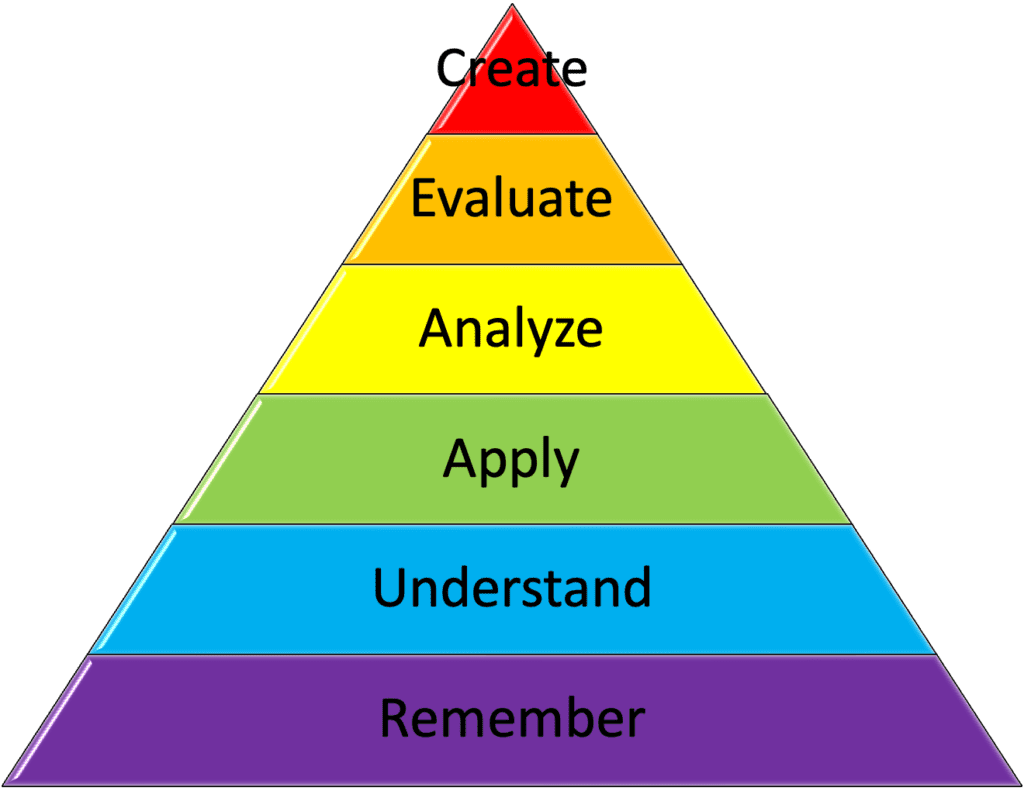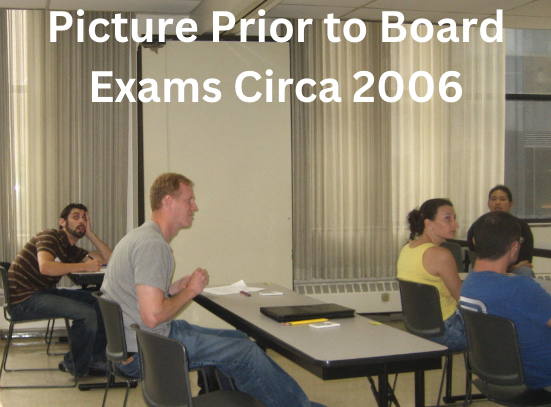Authored by Dr. Leland Jaffe; Associate Dean and Associate Professor; Published on May 5th, 2024
If you want to join my network, please consider the following:
- Join The Higher Learning Hub Facebook Group – Link to Facebook Group
- Subscribe to this website to receive regular updates of new content – Subscribe here
- Join me on LinkedIn
- Follow the Higher Learning Hub Instagram Page – Link to Instagram Page
Building a robust professional network is necessary for career advancement and success in today’s interconnected world. Whether you’re a recent graduate stepping into the workforce or a seasoned professional looking to expand your horizons, the importance of networking cannot be overemphasized.
Here’s WHY and HOW you can optimize your network to propel your career forward.
1. Create Authentic Connections:


Professional networking is more than just exchanging business cards or connecting with new people on LinkedIn; it’s about building genuine relationships based on mutual respect and shared interests. Attend industry events, seminars, or workshops where you can meet like-minded professionals and engage in meaningful conversations. Be authentic, show genuine interest in others, and don’t hesitate to share your own experiences and expertise.
Building a strong network will help you in the future as you attempt to advance your career, however, you don’t know when you’ll need assistance from others. I would recommend connecting with individuals in your career field casually a couple of times a year to catch up, exchange ideas, and/or offer to assist them. People are less inclined to provide assistance or guidance to you if you’re only contacting them when you need help. Personal networking should be a lifelong process as you advance along your career path.
2. Expand Your Knowledge Base:
One of the greatest benefits of networking is learning from others and building new connections. Surround yourself with individuals from diverse backgrounds and industries who can offer different perspectives and insights. Be open to new ideas, ask questions, and actively listen to others’ experiences. Expanding your knowledge base lets you stay informed about industry trends, best practices, and emerging opportunities. It sounds cliche, but I agree with the statement that you never want to be the smartest person in the room.
3. Unlock Career Opportunities:
Many new career opportunities are never advertised publicly but are filled through referrals or word-of-mouth recommendations. By cultivating strong professional connections, you increase your chances of hearing about these job opportunities and getting your foot in the door. Building relationships with other professionals, personal mentors, and peers can lead to valuable career opportunities. Again as stated above, an excellent way to be thought of for new job opportunities is to have an open line of communication with your professional circle and maintain these relationships. If the only time your network hears from you is if you need something, you’re much less likely to receive their support.
4. Receive Support and Guidance:


Navigating the complexities of the professional world can be daunting, especially during times of transition or uncertainty. A strong professional network can serve as a support system, offering guidance, mentorship, and encouragement when you need it most (e.g. during a job loss). Don’t hesitate to reach out to your network for advice, feedback, or emotional support. Remember, everyone faces challenges at some point in their career, and having a supportive network can make all the difference.
5. Pay It Forward:
Networking is not just about what you can gain but also what you can give back to others. Be generous with your time, knowledge, and resources, and look for opportunities to support and uplift your peers. Whether it’s offering mentorship to younger professionals, making introductions, or sharing valuable insights, paying it forward can strengthen your relationships and contribute to the growth of your network. The concept “you get what you put out” is essentially about the principle of reciprocity or cause and effect. It suggests that the effort, energy, or resources you invest in a particular person will directly influence the outcomes or results you experience. In other words, the quality and quantity of your actions or contributions will determine the outcomes you receive in return.
This concept emphasizes the importance of taking responsibility for one’s actions and choices because they ultimately shape the trajectory of one’s life. Whether in personal relationships, professional endeavors, or any other aspect of life, the idea is that positive actions tend to yield positive results. In contrast, negative actions may lead to unfavorable consequences. Overall, it underscores the significance of intentionality, diligence, and accountability in achieving desired outcomes.


A hallmark of a strong leader is their ability to uplift and empower those around them. They recognize the potential in others and are committed to fostering growth and development within their team. Through encouragement, support, and mentorship, they inspire individuals to reach their fullest potential and overcome challenges. A strong leader leads by example, demonstrating resilience, integrity, and determination in the face of adversity. They create a positive and inclusive environment where team members feel valued, respected, and motivated to contribute their best efforts. By fostering a culture of collaboration and continuous learning, they cultivate a sense of unity and shared purpose, driving collective success. Ultimately, a strong leader understands that their success is intricately linked to the success of those they lead, and they actively invest in the growth and well-being of their team members.
Expanding your professional network is crucial for career growth and opportunities.
Below are some practical ways to develop professional relationships:
1. Attend industry events and conferences:


These gatherings offer new opportunities to meet professionals in your field to exchange ideas and build connections. I have met so many great people through these types of events, especially when I participate as a speaker.
2. Join professional associations and organizations:
Become a member of groups related to your industry. These communities often host networking events, workshops, and online forums, which is a great place to meet industry professionals and thought leaders in your field.
3. Utilize social media platforms:
LinkedIn, in particular, is one of the most powerful social networking tools to build online communities. LinkedIn is an important networking tool for professionals, offering a platform to showcase skills, connect with peers, and explore job opportunities. Through personalized profiles, you can highlight your experiences and accomplishments, while connecting with colleagues and industry leaders.
LinkedIn has been an invaluable tool for expanding my professional network. Through active engagement on the platform, I’ve connected with colleagues in my field, industry experts, and other professionals to collaborate with. Also by regularly sharing content and engaging with others’ posts, I’ve been able to establish credibility and build meaningful relationships. It’s exciting to see the array of opportunities that unfold when you step out of your comfort zone and actively engage with other like-minded individuals.
4. Attend a networking event:


Look for local events specifically designed for professionals to network and mingle. These casual settings can be a great way to make valuable connections.
5. Volunteer or participate in community initiatives:
Giving back to your community not only benefits others but also exposes you to new people and experiences. Volunteering can lead to unexpected networking opportunities. There are several volunteering opportunities for medical professionals including medical mission trips, volunteering at free clinics in your community, health education programs, and participating in mentorship programs. I have enjoyed volunteering with local health expos, free health screenings at a New Balance Store, and speaking at a local YMCA, among other opportunities.
6. Take advantage of informational interviews:
Reach out to professionals you admire and ask for informational interviews. This informal conversation allows you to learn more about their career paths and gain valuable insights. Find others who have achieved goals that you’ve set for yourself, and take the opportunity to learn how they found success.
7. Stay in touch with former colleagues and classmates:
Maintain relationships with past coworkers, classmates, and mentors. They can provide valuable advice, referrals, and even job opportunities in the future. Again, avoid only reaching out to your group of people when you need their assistance.
8. Offer to Mentor or be Mentored:
Offering to mentor someone can significantly contribute to building your network in several ways. In my experience, this has been one of the most effective ways to build my network. Firstly, mentoring establishes a personal connection with the mentee, fostering trust and rapport. This connection can lead to reciprocal support and future collaboration opportunities. Mentoring also enhances your reputation as a knowledgeable and experienced professional, attracting others who may seek your guidance or mentorship.
Additionally, mentoring allows you to expand your network indirectly through the mentee’s connections, as they may introduce you to their peers or colleagues. Moreover, mentoring provides opportunities for learning and growth, as mentees may bring fresh perspectives or insights that benefit their professional development. Overall, mentoring someone benefits the mentee, strengthens your network, and enhances your professional reputation.
Let’s Hear From Others Professionals About Building A Network


Kelly D’Amico, MBS Founder Made to Sustain, Sustainable Food Blog & Podcast https://madetosustain.com/
As someone who runs a website and a podcast, connections are critical for finding guests and inspiration. You can always lean into your network so when you need your safety net, it works for you. Networking is incredibly important for everyone, but it’s so important to college students. It opens doors to a world of opportunities – jobs, special projects, interests, or even just friendships. The best time to network is right now, but it’s actually easier than you might think.
If you’re feeling nervous about networking, remember that many others feel the same way. One way to overcome this fear is to start small by reaching out to classmates or professors and asking what types of projects or companies they are working on. You can and should attend networking events hosted by your school with alumni or companies. You should also join clubs related to your interests. Meeting people with similar interests is a great way to continue those interests both personally and professionally.
The Need For Building Genuine Relationships
Networking is not just about asking for favors or asking for a job, but it’s about building genuine relationships. It’s a perfect time to figure out what interests you and what’s going on in your industry. When you network, you get to learn from others, gain a new perspective, and expand your knowledge beyond the classroom walls. Plus, you never know who you might meet or what opportunities might arise from those connections!
Networking Tips
A few tips for networking would be to start with practicing your elevator pitch. This should be a concise introduction about yourself, your goals, and maybe why you’re interested in speaking with someone. The most important part of networking is to follow up with people you meet to nurture those relationships. This can be through email, LinkedIn, or even meeting up in person for a coffee. The best question you can ask after you meet with someone is to see if there is anyone else you should follow up with. The more you practice, the more confident you’ll become, and soon networking will feel like second nature.
Kelly D’Amico, MBS, is the founder of a food sustainability blog and podcast called Made to Sustain, which spreads awareness about the actions that individuals and companies can take to contribute to a more sustainable food system. She creates and shares recipes and food brands that are good for people and good for the planet. Kelly has a Master’s of Business and Science Degree in Global Food Technology and Innovation and a Bachelor’s of Science in Food Science and Nutrition, both from Rutgers University. She holds several certifications in sustainability, including Circular Economies from the University of Cambridge, and has over eight years of experience in the food industry, with a focus on plant-based ingredients.
Michael J King DPM, FACFAS, FASPS
Medical Director, Upperline Healthcare, Inc.
It is ALL about relationships. One must build those from day one in school, practice, and life to thrive. Developing those relationships helps us grow as physicians, medical politicians in pursuit of helping the profession, and simply as humans. Gathering friends, colleagues, and acquaintances in life helps us to become better in all aspects of life. Maintaining those relationships can be work but it all pays off at some point along the way. Having a motto of “take the call”, allows one to learn more about what people need, what they want, and how we can help each other grow.
Jeff Dikis, DPM, FACFAS Host of the Pod Patrol Podcast; 1/2 of @footdocduo
LinkedIn, Instagram, and in-person conferences, labs, and events. I’ve heard you can even find people to start a podcast with this way!
The Importance of Building A Professional Network – Conclusion
In conclusion, building a professional network is a continuous effort that requires patience, persistence, and most importantly authenticity. By investing time and effort into developing meaningful relationships, you can unlock a world of opportunities, and support, and grow strong your professional connections. So, take every opportunity to connect, learn, and collaborate, and watch as your network becomes your greatest asset in achieving success in your career.
If you’re looking to connect with me, please email contact@higherlearninghub.com







